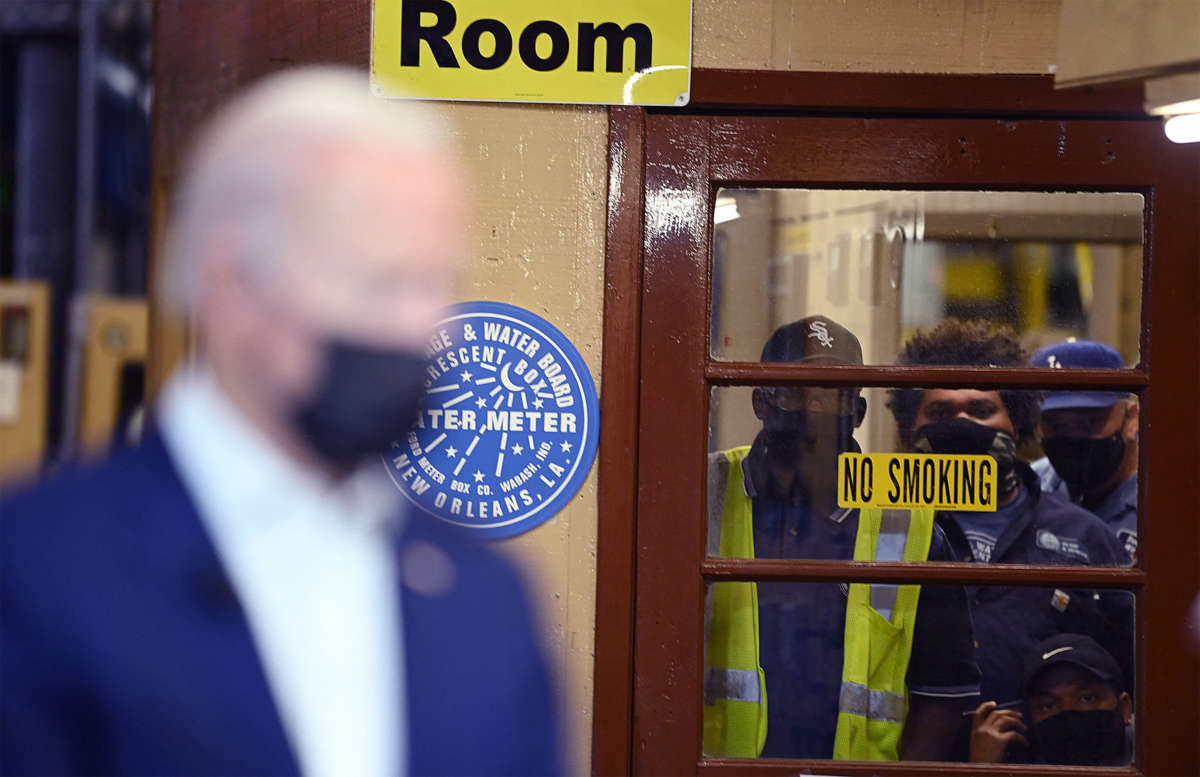Did you know that Truthout is a nonprofit and independently funded by readers like you? If you value what we do, please support our work with a donation.
Black workers have been hit hardest by the pandemic. We are more likely to lose income because of Covid-related layoffs and shutdowns, and by last August — five months into the pandemic — Black unemployment was nearly double that of white unemployment.
But the impact is not just economic. We are three times more likely to be exposed to Covid-19 on the job and twice as likely to die from the virus. To recover from the devastating effects that Covid-19 has had on all communities, we must center the concerns and needs of Black workers in the economic recovery to come. It’s a moral imperative, but it also makes good fiscal and political sense, too.
We already know what policies work: when we need to get help to American families, we rely on cash assistance, focus on eliminating barriers to employment and advancement, and build in legal protections against discrimination. It’s time to put them to work in this economic recovery.
The National Black Worker Center has published a new report, outlining how federal, state, and local governments can finally place Black workers at the center of an economic recovery that works for everyone. Our recommendations include:
- Invest in immediate relief and job creation in the Black community.
- Protect workers and eliminate discrimination in the workplace.
- Promote equal pay.
- Establish and strengthen offices that protect workers.
The nation’s job growth is sluggish not because workers are counting on government checks, but because our political leaders have yet to address the root causes of work shortages during this pandemic, including a childcare crisis and workplaces that are especially unsafe for Black workers and other workers of color. Until Congress and state leaders take these challenges on, we will continue to need direct payments, which, for many working families, can be the difference between having essentials or being forced to decide between food, utilities, or transportation.
If we as a country are serious about criminal justice reform, we must also reckon with a specifically vulnerable population of Black workers: those who are or were previously incarcerated. Even before the pandemic, returning to a community after incarceration was challenging because of policies that block people with arrest or conviction records from securing housing, employment, and government assistance. Securing these necessities became even more difficult last year amid uncoordinated releases from jails and prison to ease over-crowding, resulting in even less time for formerly incarcerated people to make Covid-safe living arrangements or enroll for the public benefits they qualify for.
Even Black workers who do not have these lived experiences are vulnerable to workplace discrimination in the best circumstances and became even more vulnerable during COVID. Earlier this year, One Fair Wage released a groundbreaking report on the subminimum tipped wage that revealed how the pandemic was making untenable work conditions even worse for Black service workers.
According to their report, Black workers were more likely to be retaliated against with lower tips due to enforcing Covid safety measures; 76 percent of Black workers report that their tips have decreased due to enforcing Covid-19 safety measures, whereas 62 percent of workers report this on average.
To help combat this treatment, we need Congress to not only revisit and finally pass legislation for a $15/hour minimum wage, but to adequately fund the Equal Employment Opportunity Commission (EEOC) to investigate instances of harassment and empower businesses to protect their workers.
These policies are just the beginning. To meet this moment of urgency, we need policymakers at every level of government to act, but especially federal government to bring their resources to bear on fighting another lost decade for Black workers.
Media that fights fascism
Truthout is funded almost entirely by readers — that’s why we can speak truth to power and cut against the mainstream narrative. But independent journalists at Truthout face mounting political repression under Trump.
We rely on your support to survive McCarthyist censorship. Please make a tax-deductible one-time or monthly donation.
